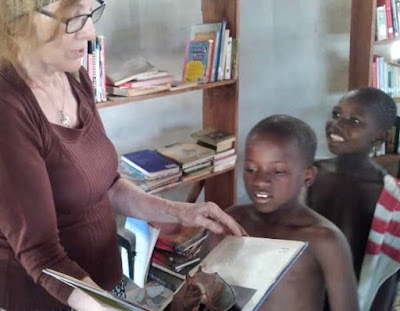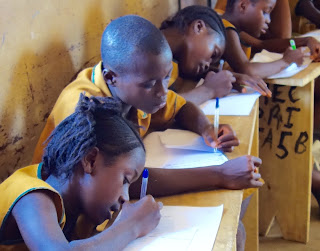This week, I sent this notice to the principals of schools where SELI maintains Young Writers clubs under the Seli River Writing Project:
I am sorry to say that because of the current COVID19 situation, SELI will be suspending Young Writers clubs for the 2020-2021 school year. I have hesitated to take this decision because every year it is the children who are at the highest risk of failing that our clubs embrace.
High-risk students benefit greatly from good content conferencing on their true personal experiences, which is best done around a table in groups of 4-6 with a teacher present. Everyone participates: children learn English from reading their work aloud, asking good questions, reflecting and explaining. People at the table talk quietly so the rest of the class can draft and revise.
Members also benefit from peer editing, where they sit closely with another member and discuss spelling, punctuation and verb tenses in both of their pieces. In teacher editing, they read their work aloud as they sit next to a teacher. The teacher listens to how the authors read to know whether they understand where sentences end, or whether someone is speaking, and then ask authors what kind of punctuation they need.
This proximity that is such a plus in our club meetings becomes a minus when social distancing is the rule. There are other reasons that we need to step away from club meetings during the COVID period. Moving about the room to access shared writing supplies or to go on to the next writing stage, helps club members take ownership over both their writing and their progress, but it, too, obstructs social distancing. Even the fact that we meet before or after school means that our students may not be protected by the same level of COVID precaution that is enforced by the school during its regular school hours. The health and safety of our children is paramount.
We fully expect to restart the SELI Young Writers program for the 2021-2022 school year in all interested schools. I urge you, in the meantime, to develop a teachers’ community of process-writing practitioners in your school using your Young Writers club teachers as advisors, so that this valuable method of teaching writing will gain its deserved place in your regular school classrooms.








